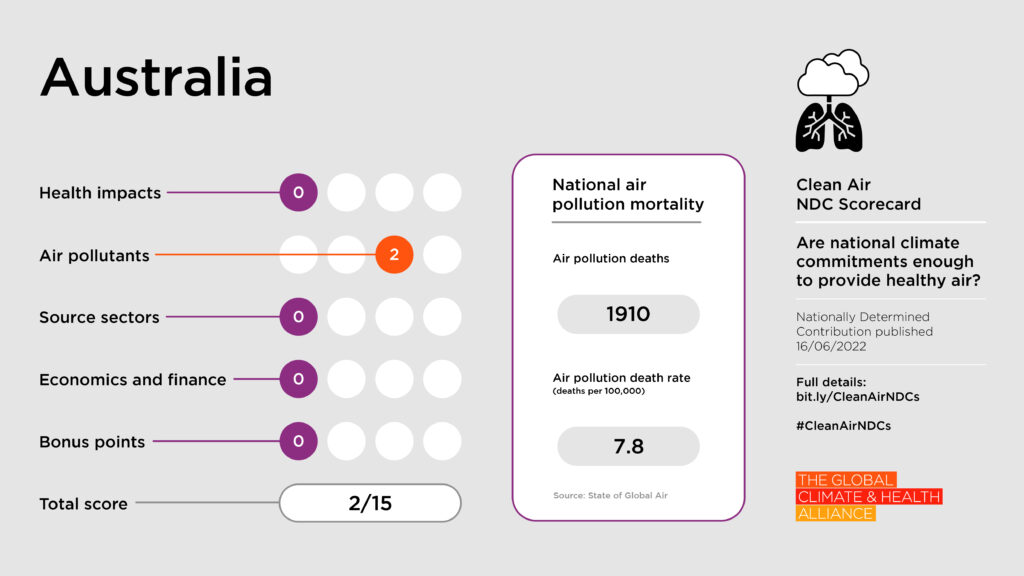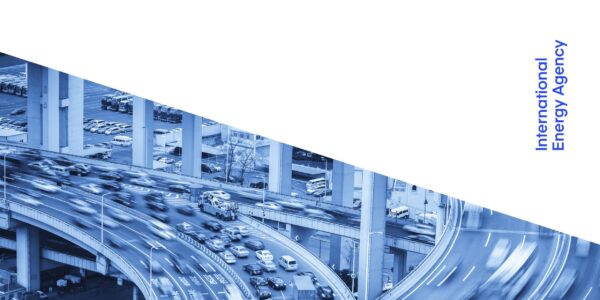Australia’s clean air scorecard fail
- PostedPublished 11 December 2023
Australia, along with Brazil, the European Union (EU), India, and the United Arab Emirates (UAE), has been identified as one of the lowest performers in terms of incorporating air quality considerations into their national climate plans among the G20 nations.

In the Clean Air NDCs Scorecard, developed by the Global Climate and Health Alliance (GCHA), Australia scored only 2 out of 15 possible points.
The scorecard evaluates a total of 170 nationally determined contributions (NDCs) submitted by 169 countries and the European Union. These NDCs are crucial in outlining a government’s priorities for addressing climate change and aligning with the objectives of the Paris Agreement. The Clean Air NDCs Scorecard assesses the integration of air quality considerations into these plans, providing valuable insights into a country’s strengths and weaknesses in addressing this critical issue.
According to the report, Australia’s poor performance is due to its failure to include measures in its commitment that could speed up the reduction of fossil fuel use. Yet despite being one of the top emitters of greenhouse gases per person and a major coal producer, Australia’s commitment to reduce emissions is still considered to be in line with keeping the global temperature increase below 3ºC. However, it received a low score in the clean air category, mainly for identifying air pollutants like N2O, HFCs, SF6, and NF3.

The study revealed that some countries completely neglect air pollution concerns in their NDCs. Saudi Arabia, North Korea, Bahrain, Nauru, Palau, and the Solomon Islands received a score of 0 for this reason.
However, the analysis found that nearly all NDCs, 164 out of 170, mention air pollution to some extent, and countries like Colombia and Mali emerged as leaders in integrating air pollution considerations, scoring 12 out of 15 possible points. Chile, Côte d’Ivoire, Togo, and Nigeria closely followed with respective scores of 10 out of 15.
Interestingly, the GCHA highlighted that lower-income countries obtained higher average scores compared to their higher-income counterparts. This suggests that nations heavily impacted by air pollution are taking more action compared to major carbon emitters like Australia.
“As major global polluters, it is crucial for G20 countries to embed air quality considerations into their NDC, yet no G20 government even scores half marks – indicative of lack of recognition of the links between climate and air quality, or ambition to take action,” stated Jess Beagley, Policy Lead at the Global Climate and Health Alliance.
The report also underscores the need for financial support to aid countries with high air pollution mortality rates, like Cambodia, Pakistan, and China, to implement their identified actions, calling on higher-income countries, including G20 members, to recognise and support these connections in their climate commitments.

Furthermore, the analysis found that only about a third of all NDCs, or 62 out of 170, mentioned specific actions to reduce air pollutants in various sectors. India, Indonesia, Saudi Arabia, and Australia, some of the largest greenhouse gas emitters, had minimal or no inclusion of air pollution in their climate plans. Transportation was the most frequently mentioned source sector, while power generation, a major contributor to fossil fuel-driven air pollution, was only mentioned in 21 NDCs.
“A full stop to burning fossil fuels is essential to unlock the enormous co-benefits of clean air,” added Beagley. “Protecting people’s health cannot be achieved by carbon capture technologies, which do not address toxic pollutants and particulates, such as black carbon.”
The findings of the Clean Air NDCs Scorecard highlight the interconnections between air pollution, climate change, and public health. Giving priority to clean air in NDCs and acknowledging the importance of coordinated action across different sectors is seen as crucial. Through these efforts, governments can not only reduce air pollution but also reap the benefits of enhanced health and work towards a more sustainable future.
- CategoriesIn SightGlass
- Tagsair quality, emissions, SightGlass News Issue 32





